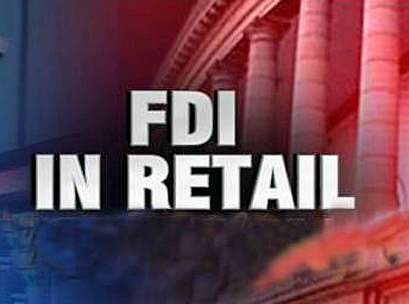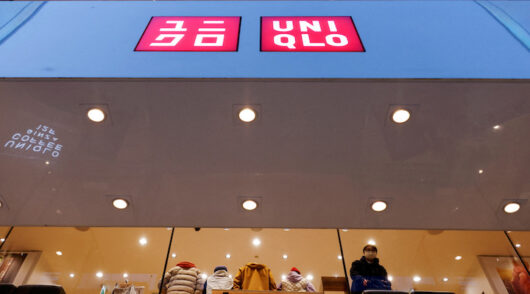India has a new leader but what does that mean for international retailing?
After what feels like an eternity of waiting, India now has a new leader. No one is surprised as all polls had been confidently forecasting the result as inevitable.
Narendra Modi, the son of a tea seller with political roots in India’s Hindu nationalist movement, is now the Prime Minister of the world’s largest democracy.
The Prime Minister comes with a powerful CV built over the years by way of his position as Chief Minister of the western state of Gujarat. His economic management drive with clear vision, business acumen and determination has forged a results-orientated political journey.
Following the swearing in ceremony, on May19, Prime Minister Modi was quoted as saying “Let us together dream of a strong, developed and inclusive India that actively engages with the global community”.
So international retailers can head to India with enthusiasm? … whoaaah, not so fast!
Before you pack your bags to commence retailing in India first you should ask what will or can the new Government do to impact positively on the critical stumbling blocks for foreign retailers wanting to get a foothold in this market of 1.2 billion people and let us be up front this is the reason why the international players want to be in India:
A country of red tape and corruption!
Prime Minister Modi has come into power with a vastly reduced size in his ministry – his council of ministers numbers 46, compared to the 71 team of the UPA – that is a clear sign of Modi himself and signals an opportunity to move with efficiency and controlled speed.
Much has been spoken on the level of corruption that prevails in India and the government is at least making the right sounds that it intends to clamp down on this disease. This will be a critical responsibility because it is one of the most significant encumbrances to doing business in India and has proven the cause of many problems for the international retailers.
Government FDI rules are restrictive and constantly changing!
Over recent years the government loosened the restrictions on Foreign Direct Investment in retailing, first allowing international retailers to enter the market in the “cash & carry” format. This was followed by allowing entry into “single brand” retail formats and last year the FDI policy was amended again giving foreign retailers a “green light”, (or should that be an “amber light”), to operating as multi-brand retailers.
It is worthwhile here to understand this segmentation ruling by retail branding is unique to India and differs to the rest of the world where retailing is defined by format such as Convenience Store, Supermarket, Hypermarket, Department Store, Specialty Store, etc. If India really wants to be global player, perhaps a starting point is to change FDI thinking to a globally acceptable format.
Sounds good...
Sunil Prasad, secretary general of Brussels-based Europe India Chamber of Commerce (EICC), said with the arrival of Prime Minister Modi investors in Europe and other parts of the world are bullish about India, despite the recent growth slowdown, as economic fundamentals remain strong.
Sounds like a caution:
But on the BJP’s, (Bharatiya Janata Party), announcement that it will reverse the FDI policy in multi-brand retail, Prasad said: “Investors expect consistency in the policy and reversal of any policy will have an adverse impact”.
The CEO of RAI, (the Retailer Association of India), Kumar Rajagopalan, says: “We will have to wait and watch. If they don’t allow FDI in multi-brand retail, then big foreign retailers may not be able to enter India. We will have to wait and see what the policies are as there were lot of encouraging signs for the retail sector in BJP’s manifesto.”
Sounds promising:
Whilst the RAI chief is watching carefully, he has an optimistic side, having been reported as saying “BJP in its manifesto had said it will develop retail infrastructure. It talked about modernising retail and improving supply chain initiative”.
Sounds bad:
The new commerce and industry minister Nirmala Sitharaman has since indicated that foreign players will not be allowed to open mega stores in the country. Sitharaman said FDI in multi-brand retail trade (MBRT) will adversely impact the small traders and farmers.
“We have explained about FDI in multi-brand retail that it probably is not best opened up now because medium and small sized traders or small farmers have not been adequately empowered… if you open up the flood gates of FDI in MBRT, it may affect them,” she said.
India is a country of change
The new Government will initially be tasked with the challenge, (and rightfully so), to improve living standards and opportunities for the millions of impoverished and disadvantaged Indians. One drive to fuel this turnaround will be to attract foreign investment. Clearly the international retail industry wants to be in the world’s largest democratic country and they will invest to get their entry.
They can invest vast sums and they do this to build long term sustainable operations. Having international retailers operating in India will develop the retail industry to global standards, create jobs and be a driver of economic change.
It is timely to remember a couple of important facts learned in all countries that have or are in the process of passing through the development, (both country and retail) phase.
- There is always strong emotional sentiment the organised retail push will destroy the traditional “mum and pop” stores. Think about this! The modern convenience store is not in India so when 7 Eleven or FamilyMart arrives, the current “kirana” store operators are the ideal candidates to manage the convenience stores and this will usher in another new era in retail in India.
- The retail industry is typically in the top three employers in most countries. Retail employs more youth than all other industries and this is an opportunity to reduce unemployment. Retail employs more females than males and this will be important with the changing attitudes to females in India.
- Retail change is inevitable. The FDI reluctance, whilst borne from earnest intentions, is in its present format globally restrictive and out of synch with how the world views and operates retail. There is no choice but to adapt and it is inevitable for India to be a part of the global retail industry it will have to adopt a global view on retail practices.
A final point that is of interest is in researching published attitudes from the retailers in India it was obvious they are staying quiet at this important time of Government change. They are being careful and avoiding comments that could be considered anti Government or possibly inflammatory at time when calm and patient persistence will better serve their needs.
There is no doubt India is in a state of change both as a country and in the retail industry. Just a decade ago there were no shopping malls and today organised retail is just 10 per cent of the market. This tells us change is – and will – continue at speed if India is going to catch up and be important in the global world of retail.
Infrastructure and logistics currently present nightmares for retailers and there is a demand for retail managers that is greater than the industry is producing.
Yet, the outcome will remain the same: This market will grow, change and change again. But with time no global retailer can afford to ignore the potential retail value of the largest democratic country in the world.
InsideRetail.Asia columnist Darrell Wisbey has 40 years retail experience, living and working in Australia and Asia. Darrell is the Chief Mentor for GREAT India B School. Delivers retail seminars and workshops for Philippine Retailers Association www.philretailers.com. You can email Darrell darrell.pra@hotmail.com.






